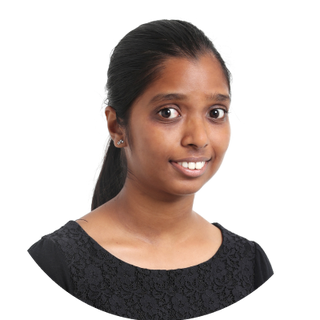No 'big bang' easing of Covid-19 restrictions in Singapore ahead of year-end festivities

SINGAPORE is not taking a "big bang approach" to relax Covid-19 restrictions, Lawrence Wong, co-chair of the multi-ministry taskforce on Covid-19 (MTF), said on Saturday (Nov 20).
The country is instead focusing on "one key parameter" - raising group sizes for social gatherings and dine-in - as it exits the Stabilisation Phase on Nov 21, said the finance minister. It is also stepping up the pace of administering booster vaccines, as well as differentiated measures based on vaccination status.
Under this "incremental approach", Singapore could look into its next round of moves around end-December, said Wong. But this depends on the healthcare system remaining stable, especially as social interactions increase amid the festive season.
As Singapore returns to the Transition Phase from Monday, up to 5 fully vaccinated individuals can dine together at food and beverage outlets, regardless of whether they are from the same household, and have social gatherings. Present restrictions only allow up to 5 fully vaccinated people to dine out if they are of the same household.
The Jobs Support Scheme for F&B establishments will be extended to Dec 19, albeit at a lower level of support of 10 per cent from Monday, down from 25 per cent at present.
In addition, the government is expanding its vaccination-differentiated safe management measures to more areas. From Dec 1, libraries under the National Library Board and selected activities in People's Association community clubs and centres will be open only to fully vaccinated individuals.
GET BT IN YOUR INBOX DAILY

Start and end each day with the latest news stories and analyses delivered straight to your inbox.
Similarly, in-person visits to hospitals and residential care homes, which resume from Nov 22, will only be allowed if both the visitor and the patient or resident are fully vaccinated.
Wong noted calls to ease other measures, such as capacity limits for attractions and malls, and workplace restrictions, but said the government has decided to hold back for now.
"If we are careful and we continue to comply with all the prevailing safe management measures, we should be able to cope with an increase in infections. Conversely, if we seek to push the limits, let our guard down, we will start a resurgence of cases which can very quickly overwhelm our hospital system yet again. We are trying very hard to avoid such a scenario."
Singapore is also accelerating its booster vaccination programme. From Nov 24, booster shots for all age groups will be standardised to 5 months after the last vaccination, said Health Minister Ong Ye Kung. This comes amid expert views that Covid-19 vaccines are a "3-dose vaccine, just like Hepatitis B", he said.
At present, individuals aged 30 to 59 have been receiving their booster shot 6 months after their second dose. Those aged 60 and above can already get a booster shot 5 months after.
The enhanced pace of booster vaccinations can cushion the impact of more Covid-19 infections on the healthcare system going forward, said Ong. This is especially as the festive season brings about "pent-up demand to want to go out".
Singapore's latest reopening measures come amid a fresh wave of Covid-19 infections in Europe. Austria announced a full lockdown on Friday (Nov 19), as it recorded over 15,800 infections in one day. Germany, which is battling a fourth wave of infections, is not ruling out a lockdown.
Asked whether Singapore may re-evaluate how it classifies countries if the Europe situation worsens, Wong said a country's infection rate is not the only determinant.
Instead, Singapore looks at a "broad range" of factors in deciding how to classify countries according to their risk status. These include the incidence of Covid-19 among travellers arriving at Changi Airport.
"We have a system in place where we look at a whole range of indicators; every fortnight we will put up periodic updates to our travel system. So we will continue with that approach in a very systematic manner," said Wong. In addition, Singapore is monitoring new Covid-19 variants of concern.
Minister for Trade and Industry Gan Kim Yong also reflected on how Singapore's stabilisation phase was not initially envisaged. Back in August, the government had laid out a 4-stage roadmap for reopening. These stages were labelled preparatory stage, transition stage A, transition stage B, and Covid-19 Resilient Nation.
"Now, we are going back to the transition phase towards Covid-19 resilience. But the fact that we took a detour through the stabilisation phase also tells us that we have to be prepared to be nimble, to adjust our approach while monitoring the situation on the ground," said Gan.
READ MORE:
Singapore-Malaysia land VTL could be launched by end-November: Gan Kim Yong
Dining, social gathering rules relaxed to allow groups of 5 from Nov 22; JSS support tapered to 10%
Booster shots standardised to 5 months after last shot for all age groups
Amendment note: An earlier version of this article quoted Gan on the classification of countries. The speaker was in fact Wong. The story has been updated to reflect this.
KEYWORDS IN THIS ARTICLE
BT is now on Telegram!
For daily updates on weekdays and specially selected content for the weekend. Subscribe to t.me/BizTimes
International
South Korea’s public finances no longer a credit rating ‘strength’: Fitch
UK consumer confidence improves as inflation and taxes fall
Inflation in Japan’s capital falls below BOJ target, slows for second month
Chinese firms are investing abroad at fastest pace in eight years
Sri Lanka’s economy expected to grow 3% in 2024, central bank says
Yellen says US can bring inflation down without hurting jobs
